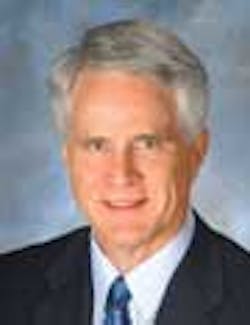It's break time for nursing mothers
BY Tim Twigg and Rebecca Crane
Let's say you have a female employee who has just returned from pregnancy leave, and let's say she asks for breaks during the day to either breastfeed or express milk. You think: She just had two months off for maternity leave, and now this?
In an industry where most employees are female and many are in their childbearing years, being confronted with both time off to have a baby (or babies) and time off to express breast milk during work hours is nothing new to the dental community. In fact, this is probably old hat to some of you reading this.
What is new is a plethora of laws that have been enacted that protect a woman's right to breastfeed or express milk at work, and require employers to provide not only the time, but also the space for an employee to properly exercise this right.
Federal rule
In 2010, when the Patient Protection and Affordable Care Act was passed, it modified the Fair Labor Standards Act (FLSA) to provide protections for nursing mothers. This modification applies to all employers.
The new amendment requires employers to "provide reasonable break time for an employee to express breast milk for her nursing child … each time such employee has need to express the milk." The regulations specifically avoid stating how much break time is to be provided, saying only "as frequently as needed by the employee." Thus, compliance with this regulation will vary between one mother and the next.
Providing said break time to the employee has to be maintained for up to one year after the birth of the child. Of course, if the mother stops breastfeeding sooner, then the provided breaks would end at that time. Also, if there is a state law that is more generous (i.e., allowing for more than one year for expressing milk), then it will supersede the federal law.
Employers are also obligated to provide "a place, other than a bathroom, that is shielded from view and free from intrusion from coworkers and the public, which may be used by an employee to express breast milk." The Act goes on to state, "A bathroom, even a private one, is not permissible. The location provided must be functional as a space for expressing breast milk. If the space is not dedicated to the nursing mother's use, it must be available when needed in order to meet the statutory requirement."
The break time does not have to be compensated unless one of the following is true:
• A state law requiring paid breaks, or an employer allowing for paid breaks, must compensate nursing mothers for using such breaks for expressing breast milk in the same way other employees are compensated.
• If the nursing mother is not "completely relieved from duty" during her break time, she must be compensated during the break.
There is an exception carved out for small employers with fewer than 50 employees. Small employers are not subject to the nursing mother break time requirement if compliance with the regulation would impose undue hardship. Undue hardship is determined by "looking at the difficulty or expense of the compliance for a specific employer in comparison to the size, financial resources, nature, and structure of the employer's business." Undue hardship can be difficult to justify and should be considered only after consulting with a professional on the matter.
State laws
Long before the federal regulation came into play, many states had already enacted laws protecting nursing mothers in the workplace. In some states, these laws are stricter. You must follow whichever law is the most beneficial to the employee.
Conclusion
Given the industry, this is likely to affect you, if it hasn't already. Be clear on your compliance responsibilities in order to avoid liability issues. Once you've gained the right information, include a Breastfeeding and Expressing Milk Rights policy in your policy manual (call us for a sample policy). That way you will be sure everyone knows what is expected and that you are treating everyone fairly and consistently.
Tim Twigg is the president of Bent Ericksen & Associates, and Rebecca Crane is a human resource compliance consultant with Bent Ericksen & Associates. For 30 years, the company has been a leading authority in human resource and personnel issues, helping dentists successfully deal with the ever-changing and complex labor laws. To receive a complimentary copy of the company's quarterly newsletter or to learn more about its services, call (800) 679-2760 or visit the website at www.bentericksen.com.


